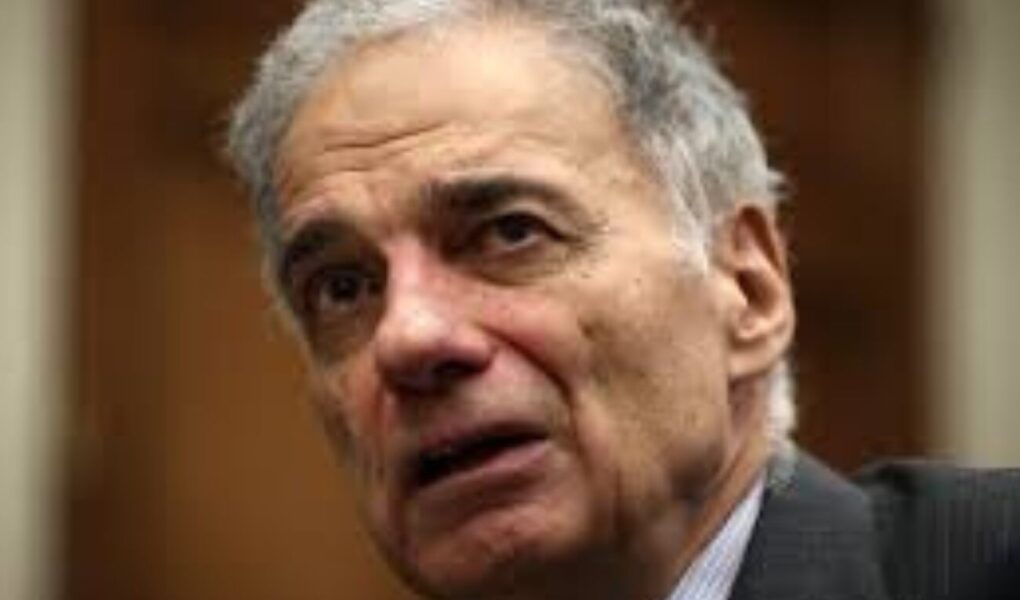Ralph Nader is a name that resonates with many as a prominent consumer advocate and influential political figure. With a career spanning several decades, Nader has fought tirelessly for consumer rights, safety regulations, and environmental protection. His 2008 presidential campaign marked another chapter in his long-standing commitment to activism and political engagement.
Understanding these details is crucial as they provide insight into the financial aspects of a candidate’s life and how it relates to their public persona.
Let’s explore the Ralph Nader 2008 net worth financial disclosure in detail.
Background on Ralph Nader
Early Life and Education
Ralph Nader was born on February 27, 1934, in Winsted, Connecticut. Growing up in a family of Lebanese immigrants, Nader’s early life was marked by the values of hard work and community involvement. He attended Princeton University, where he graduated with a Bachelor’s degree in 1955. Later, he earned a Bachelor of Laws (LL.B.) from Harvard Law School in 1958.
Nader’s education was pivotal in shaping his worldview. Influenced by his professors and the social movements of the time, he developed a keen interest in consumer rights and corporate accountability. This foundation would later fuel his lifelong activism.
Career Highlights
Nader is best known for his contributions to consumer advocacy, particularly through his groundbreaking book, “Unsafe at Any Speed,” published in 1965. This work exposed the dangers of the auto industry and challenged manufacturers to improve safety standards. His efforts led to significant legislative changes, including the establishment of the National Highway Traffic Safety Administration.
Throughout his career, Nader founded multiple organizations, including the Public Interest Research Group (PIRG) and the Center for Study of Responsive Law. His dedication to consumer rights has earned him numerous accolades and recognition as a leading figure in American activism.
Ralph Nader’s Political Campaigns
Overview of Presidential Campaigns
Ralph Nader has run for president multiple times, with campaigns in 2000, 2004, and 2008. Each campaign focused on critical issues such as corporate influence in politics, environmental sustainability, and social justice.
In 2000, Nader’s candidacy drew significant attention, particularly among voters disillusioned with the two-party system. His campaign in 2004 continued to emphasize these themes, setting the stage for his 2008 run.
The 2008 Presidential Campaign
Nader’s 2008 presidential campaign was marked by challenges, including a lack of media coverage and competition from major party candidates. Despite these obstacles, he remained committed to his message of political reform and consumer rights.
His platform included proposals for healthcare reform, environmental protection, and electoral reform. Nader’s message resonated with many voters who felt marginalized by traditional political parties, although it struggled to gain widespread traction.
Financial Disclosure in Politics
Importance of Financial Transparency
Financial transparency is crucial in politics as it builds public trust. Voters have a right to know the financial backgrounds of candidates, which can influence their decisions at the polls. A candidate’s financial disclosure can offer insights into their integrity and potential conflicts of interest.
Legal requirements mandate that presidential candidates disclose their financial information, including assets, liabilities, and sources of income. This transparency helps to uphold the democratic process.
Overview of Nader’s Financial Disclosure in 2008
In 2008, Nader’s financial disclosure revealed key figures that painted a picture of his financial standing. Here are some highlights from his financial report:
| Asset Type | Value |
|---|---|
| Real Estate | $1.5 million |
| Investments (stocks) | $2 million |
| Other Assets | $300,000 |
| Total Liabilities | $400,000 |
| Net Worth | $3.4 million |
When compared to other candidates in the same election cycle, Nader’s financial disclosure reflected a modest financial status, especially when juxtaposed with the wealth of major party candidates.
Ralph Nader’s Net Worth in 2008
Calculation of Net Worth
Calculating Nader’s net worth involved examining his reported assets and liabilities. The breakdown reveals a balance between his investments and properties, showcasing a reasonable level of wealth for a public figure.
Nader’s investments primarily included stocks and bonds, while his real estate holdings contributed significantly to his overall net worth. This financial profile suggests a life of prudent investment rather than extravagant spending.
Historical Context of Nader’s Wealth
In 2000, Nader’s net worth was estimated at $3.8 million, which indicates a slight decrease by 2008. This decline could be attributed to various factors, including market fluctuations and his dedication to consumer advocacy, which often overshadowed personal financial growth.
Nader’s lifestyle choices reflect his commitment to activism over wealth accumulation. This decision aligns with his public persona as a champion for the common citizen, demonstrating that his wealth did not define his values or mission.
Public Perception of Nader’s Wealth
Media Coverage of Nader’s Finances
During the 2008 campaign, media coverage of Nader’s financial status varied widely. Some outlets portrayed him as a selfless activist, while others scrutinized his wealth in light of his advocacy for the less fortunate. This mixed coverage often highlighted the contrast between his financial status and his message.
Public Reaction
Public opinion regarding Nader’s wealth was equally divided. Many supporters viewed his financial independence as a strength, reinforcing his ability to speak out against corporate influence in politics. Conversely, critics pointed to his net worth as a potential conflict with his advocacy for consumer rights.
This dichotomy illustrates the complex relationship between wealth and activism, as voters grappled with the implications of Nader’s financial background on his credibility.
Implications of Financial Disclosure
Trust and Credibility
Financial disclosures can significantly impact a candidate’s trustworthiness and credibility. Voters often use this information to gauge a candidate’s integrity and commitment to their platform. A transparent financial background can enhance a candidate’s appeal, while undisclosed financial matters could raise red flags.
The Role of Wealth in Political Activism
The question of whether wealth influences an activist’s credibility is a nuanced one. On one hand, wealth can provide resources for campaigning and advocacy. On the other, it may lead some to question the authenticity of a candidate’s message.
Nader’s wealth, juxtaposed with his lifelong commitment to consumer rights, creates a unique narrative. For many, his financial background does not detract from his message but rather adds depth to his advocacy.
For more information read our net worth category.




